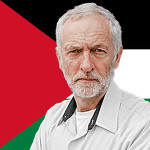|
Rigged Death Trap posted:The IDF has collapsed the tunnels under Alshifa in their retreat. Can you please provide sources when making relatively big claims like this.
|
|
|
|

|
| # ? May 11, 2024 19:45 |
|
Fidelitious posted:Can you please provide sources when making relatively big claims like this. [ E: https://www.timesofisrael.com/liveblog_entry/before-truce-idf-destroys-hamas-tunnel-under-shifa-hospital-completes-new-deployment/ There was a jerusalem post article about it but its been buried somewhere in the live updates blog structure. The sourceof this can be traced back to Kan 11, Israeli state owned news. https://twitter.com/Jerusalem_Post/status/1727926828935909377 Rigged Death Trap fucked around with this message at 15:55 on Nov 26, 2023 |
|
|
|
Rigged Death Trap posted:The IDF has collapsed the tunnels under Alshifa in their retreat. 
|
|
|
|
Are there any historical similarities to this conflict? Oppressed/oppressor geopolitics etc
|
|
|
|
Shaocaholica posted:Are there any historical similarities to this conflict? Oppressed/oppressor geopolitics etc Plenty of similarities, but no scenarios that really map well as a whole. There's reasons why people talk about apartheid and bantustans, because SA is an obvious comparison. Also the British in Ireland and elsewhere. Also the Third Reich. Also elements of Armenia. If you're just looking for the geopolitics of the US supporting a genocidal state there's probably a dozen examples - read The Jakarta Method.
|
|
|
|
Shaocaholica posted:Are there any historical similarities to this conflict? Oppressed/oppressor geopolitics etc Here is a really good article in London Review of Books about that specific question, focusing on the general applicability of the Algerian independence struggle as an analogy (including a lot of good stuff by Fanon) and the general inapplicability of comparisons to Nazi Germany (at least those comparisons where Hamas is Nazi Germany) https://www.lrb.co.uk/the-paper/v45/n21/adam-shatz/vengeful-pathologies quote:Many analogies have been proposed for Al-Aqsa Flood: the Tet Offensive, Pearl Harbor, Egyptís attack in October 1973, which started the Yom Kippur War, and, of course, 9/11. But the most suggestive analogy is a pivotal, and largely forgotten, episode in the Algerian War of Independence: the Philippeville uprising of August 1955. Encircled by the French army, fearful of losing ground to reformist Muslim politicians who favoured a negotiated settlement, the FLN launched a gruesome attack in and around the harbour town of Philippeville. Peasants armed with grenades, knives, clubs, axes and pitchforks killed Ė and in many cases disembowelled Ė 123 people, mostly Europeans but also a number of Muslims. To the French, the violence seemed unprovoked, but the perpetrators believed they were avenging the killing of tens of thousands of Muslims by the French army, assisted by settler militias, after the independence riots of 1945. In response to Philippeville, Franceís liberal governor-general, Jacques Soustelle, whom the European community considered an untrustworthy ĎArab loverí, carried out a campaign of repression in which more than ten thousand Algerians were killed. By over-reacting, Soustelle fell into the FLNís trap: the armyís brutality drove Algerians into the arms of the rebels, just as Israelís ferocious response is likely to strengthen Hamas at least temporarily, even among Palestinians in Gaza who resent its authoritarian rule. Soustelle himself admitted that he had helped dig Ďa moat through which flowed a river of bloodí. And the key difference between Israel and French Algeria is that there is no France for the Israelis to flee to: quote:The inescapable truth is that Israel cannot extinguish Palestinian resistance by violence, any more than the Palestinians can win an Algerian-style liberation war: Israeli Jews and Palestinian Arabs are stuck with each other, unless Israel, the far stronger party, drives the Palestinians into exile for good. Civilized Fishbot fucked around with this message at 18:15 on Nov 26, 2023 |
|
|
|
Civilized Fishbot posted:And the key difference between Israel and French Algeria is that there is no France for the Israelis to flee to: They do have a huge number of dual nationals though and if it came to it those without dual nationality would almost certainly have the US and Europe expedite their asylum claims. They absolutely have a Metropole.
|
|
|
|
Civilized Fishbot posted:Is it crazy to think that the "high concentrations of particulate matter" have something to do with the mass bombing of buildings throughout Gaza? It's definitely crazy to claim out of thin air (heh) to make a good analogy. Without checking what is usually the air quality around this time of year and how unique this is, or if there are any meteorological events that could cause this. I don't know anything about air quality but I also don't know why this is in any way relevant
|
|
|
|
WhiskeyWhiskers posted:They do have a huge number of dual nationals though and if it came to it those without dual nationality would almost certainly have the US and Europe expedite their asylum claims. They absolutely have a Metropole. A metropole as in a patron/guardian empire on which they're dependent for economic and diplomatic support, absolutely. A country from which they can flee the violence of colonization and decolonization? About 1 in 6 Israelis have one, leaving about 7.5 million without. This is the best estimate I could find: quote:According to a Shiluv/Ipanel poll of 500 Israelis conducted for Channel 2 news, 17 percent of Israelis already hold a foreign passport and 56% would like one. That really is a huge number compared to other countries (probably, I couldn't find great estimates for other countries either). But it's not remotely comparable to French Algeria where virtually 100% of the French occupiers and Pied-noirs could obtain refuge in France. The idea that America and Europe would, out of the goodness of their hearts, open their doors to millions of refugees "if it came to it" is obviously ridiculous - and even in this fantasy, to flee and seek asylum is not remotely comparable to moving/returning somewhere where you already have citizenship, as the French in Algeria got to do. It should go without saying that this doesn't justify occupation, apartheid, or genocide - in fact it makes ending these things necessary for the safety of Israeli civilians. They mostly can't go somewhere else to get away from the threat of another October 7, nor can the state bomb it away (the Metropole itself will not allow the total ethnic cleansing of Gaza). The only thing they can do is end the conditions which made it possible - the occupation, the apartheid, the march toward genocide. Like Said said: The Question of Palestine posted:Two things are certain: the Jews of Israel will remain; the Palestinians will also remain. Arabs and Jews posted:We must give up, once and for all, the idea that we shall have a Middle East that is as if Zionism had never happened. The Israeli Jew is there in the Middle East, and we cannot, I might even say that we must not, pretend that he will not be there tomorrow, after the struggle is over. kiminewt posted:It's definitely crazy to claim out of thin air (heh) to make a good analogy. Without checking what is usually the air quality around this time of year and how unique this is, or if there are any meteorological events that could cause this. There was a huge air quality issue in New York after 9/11, entirely due to three large buildings and two planes being destroyed and releasing their matter into the air. In Gaza the IDF has destroyed tens of thousands of buildings, it seems logical to me that it would cause a similar problem, faced mostly by the people of Gaza but inevitably carrying beyond those borders (the article says it's coming in on wind from the west, where Gaza is). You're right that it needs actual scientific investigation, and I'm asking the thread in case someone here is a weather nerd - I'm not, so I don't know how to do more than guess. It's relevant as far as that breathable air is a human right and that the analogy speaks for itself. Civilized Fishbot fucked around with this message at 20:55 on Nov 26, 2023 |
|
|
|
a one state solution does not equate to ethnically cleansing jewish Israeli's either way, that's Zionist propaganda. There's enough room in Palestine for all people to coexist. There is NOT room for an apartheid state.
|
|
|
|
punishedkissinger posted:a one state solution does not equate to ethnically cleansing jewish Israeli's either way, that's Zionist propaganda. There's enough room in Palestine for all people to coexist. There is NOT room for an apartheid state. this. also applicable to the world at large.
|
|
|
|
punishedkissinger posted:a one state solution does not equate to ethnically cleansing jewish Israeli's either way, that's Zionist propaganda. There's enough room in Palestine for all people to coexist. There is NOT room for an apartheid state. South Africa in particular, and a whole bunch of postcolonial states that had been under minority rule in general, were able to reach outcomes that aren't "everybody of the previous dominant ethnicity is killed". A bunch of them even managed it without too much violence. There are models to work with here. My personal favorite obscure-ish one, Sri Lanka, isn't exactly a perfect model, what with the civil war, but (both origin groups of) Tamils are now integrated back into Sinhalese-majority egalitarian-ish civil society The biggest threat to the feasibility of a one state (or two state) solution isn't Palestinians, it's Israeli settlers and their far right backers. Israeli centrists and leftists are rightly worried about causing a civil war among Israeli Jews, leading non-rightly to frequent paralysis even when it's not a Netanyahu+fascists ruling coalition.
|
|
|
|
Speaking as an Irish person, the one constant fear of the dominant occupying power is that the occupied population will brutalise the occupiers as badly as the occupiers have brutalised the occupied. They always justify the cruelty by claiming their victims will turn around and hurt them as badly as they have hurt their victims You can never lift the oppression because your victims will take the opportunity to strike back. It's always projection, and and it's always the same. Edit : oh poo poo, this is the terrible thread, did not mean to post here in calm Hitler land. (USER WAS PUT ON PROBATION FOR THIS POST) Pookah fucked around with this message at 22:06 on Nov 26, 2023 |
|
|
|
punishedkissinger posted:a one state solution does not equate to ethnically cleansing jewish Israeli's either way, that's Zionist propaganda. There's enough room in Palestine for all people to coexist. There is NOT room for an apartheid state. It doesn't necessarily equate, but it's still worth noting the difference because Algerian independence was immediately followed by a mass exodus of French Algerians of European descent (commonly known as pieds-noirs). The pieds-noirs were never actually forced to leave, in fact. They did have the option to remain and be granted Algerian citizenship as theoretical equals under a non-apartheid system. However, it seems that after fiercely advocating for the brutal suppression of Algerian ambitions for equality, leading to the deaths of more than a million Algerians in the increasingly bloody struggle to maintain their apartheid regime, the million pieds-noirs living in Algeria didn't find nominal equality under Algerian rule to be a particularly attractive idea and didn't expect to be welcomed warmly by their Algerian neighbors. Rather than try being equals to the colonial underclass they'd looked down upon and oppressed so harshly, most of them figured they'd be happier retreating to the metropole. It's important to bring up because, while the Israel/Palestine situation bears a lot of similarity to French Algeria, one major difference is that most of the Israeli colonists don't have that option to just leave if they don't like the dismantling of their apartheid regime. One way or another, one-state or two-state, the two sides here are going to have to live with each other - with the memories of the atrocities they've committed against each other still fresh in their minds.
|
|
|
|
You posted earlier about the terms of the Camp David agreement in 2000, and how unfair it was. Is there an easy source for that? I'm looking at what are supposed to be that and not seeing those details.
|
|
|
|
The process of a just peace is difficult, messy, happens in fits and starts, and always involves some level of compromise that often means people involved in previous crimes get released from prison or amnesty or what have you. The surviving bomber who killed some of my family in The Troubles was released after a few years of his sentence under the Good Friday Agreement, and that loving sucks, but (speaking for myself) if that's part of the price paid for peace then so be it, I'd rather it sucks for my family than continuing the cycle and creating more dead kids and more ruined families forevermore.
|
|
|
|
I stumbled upon an article about a couple of kids that were part of the latest batch of Hamas hostage releases: https://www.theguardian.com/world/2023/nov/26/israeli-teenagers-freed-hamas-not-aware-mother-murdered. This is absolutely devastating. It talks about how they were abducted and the fate of their parents. I don't have much to say beyond this is an example of why I can never support targeting civilians.
|
|
|
|
Jaxyon posted:You posted earlier about the terms of the Camp David agreement in 2000, and how unfair it was. The problem is that nobody ever wrote down an actual proposed agreement at Camp David. It was an intentional tactic in the negotiations - it was thought that both sides would need to seriously discuss concessions that would be politically unaccceptable back home, and therefore they shouldn't have to actually sign their names to anything until they had mutual agreement on a final deal. As such, most of our sources on the Camp David negotiations were anecdotal claims by the negotiators relying on their own memories and focusing on what benefited the narratives they wanted to push. There's no simple authoritative sheet of paper that lays everything out. Moreover, all of it is still a bit early in the internet era, so it's mostly documented in books and ancient news articles rather than internet articles. As such, the individual details of the deal are scattered all around in different articles and accounts, and take some piecing together. This also means that it's difficult to find neutral sources - pretty much everyone leaking the details had An Opinion about who was right and who was wrong, and most of them were trying to deflect any political blame that might come to their own side. The sources all generally agree on the high-level details (some of the specifics, like exactly how many pieces the West Bank would have been split into, differ from source to source), but each source tends to place heavy emphasis on the stuff they thought made them look good while barely mentioning the stuff that didn't. And the majority of English-language sources were Israeli and American negotiators who placed heavy emphasis on the land concessions but weren't very interested in treating Israeli insistence on "security" concessions as something negotiable. By the way, "security" is the keyword to use when searching for these bits of Israel/Palestine deals, by the way. All this stuff is always justified under the need for Israeli "security". Ultimately, probably the most thorough summary comes from Mahmoud Abbas himself, who described the Israeli offer in a speech at the PLO Central Council: quote:We went to Camp David carrying our well-known positions, positions that were adopted by several of our legislative bodies. The positions we adopted are, in our point of view, the minimum that we can accept. They are positions that are based on United Nations Resolutions 242, 338 and 194. They are based on agreements signed between the Israelis and us, they are based on Israeli documents concerning the 1948 nakba (catastrophe) and the forced expulsion of Palestinians from their homes, and they are based on UN Security Council resolutions dealing with Jerusalem and Jewish settlements. Arafat himself described similar things in an interview with PBS, though it's a bit hard to parse because they didn't really clean up his English: quote:Q: If I may go back to Camp David? You couldn't accept the proposals in Camp David. Why? Other Palestinian negotiators detailed similar issues as well, as covered by Haaretz: quote:Members of the panel of experts working alongside the Palestinian negotiating team, who have American passports in their possession that open Israel Defense Forces roadblocks, have embarked in recent weeks on a round of appearances throughout Israel. They lecture at living room meetings in homes in Herzliya and meet with forums of confused intellectuals in Jerusalem. For people who aren't willing to take the Palestinian negotiators at their word, things become quite a bit more difficult, especially since those people are unlikely to accept reports from pro-Palestinian sources in general. Israeli and American sources do confirm pretty much all of this, but they largely left these parts out of the public discourse. If you're not buying up a bunch of books, you have to dig around and pick through quite a few different documents looking for scraps of confirmation here and there. I'll cite some examples of Israeli or American sources confirming the Palestinian claims: The American "no-surprise policy" in which they pre-cleared everything with Israel first comes from this splendid article by Robert Malley, one of the US negotiators at Camp David. While it mostly covers the political circumstances influencing the deal and doesn't go into details on the deal itself, it's still an excellent read and a strong attempt to push back against American narratives pinning the blame on Arafat. The pro-Israel alignment of Dennis Ross, the State Department guy heading up the US negotiation team, has been accused not only by Palestinians but also by other State Department employees of being biased towards Israel. ("Miller" here is Aaron David Miller, another member of the US negotiation team at Camp David 2000) quote:Balance is something this meticulous diplomat prizes. But a recurrent issue with Ross, who embraced the Jewish faith after being raised in a nonreligious home by a Jewish mother and Catholic stepfather, has been whether he is too close to the American Jewish community and Israel to be an honest broker with Iran or Arabs. Miller, after years of working with Ross, concluded in a book that he ďhad an inherent tendency to see the world of Arab-Israeli politics first from Israelís vantage point rather than that of the Palestinians.Ē Another former senior State Department official, who requested anonymity because he didnít want to jeopardize his relationship with the administration, told me, ďRossís bad habit is preconsultation with the Israelis.Ē Ross earned $421,775 from speeches last year, of which more than half came from Israeli and Jewish groups, according to a financial-disclosure statement. An openly and vehemently pro-Israel thinktank, the Jerusalem Center for Public Affairs, has an article by a retired general who confirms that that Israel demanded control over Palestinian airspace in 2000, though he confirms it in the course of arguing that Palestinian aviation is unacceptable for Israel and that full control over Palestinian airspace is absolutely necessary for Israeli security (drink!). The same series of articles also confirms that Israel has insisted on a demilitarized Palestinian state since Oslo. The series of articles also calls for Israeli control over the Jordan River Valley and rejects the idea of a West Bank-Gaza connection and the idea of involving international peacekeeping forces, though it doesn't clearly confirm that Israel demanded these at Camp David. As for the Israeli border inspectors and military installations in the West Bank, as well as the division of the West Bank into multiple pieces, this paper from Middle East researcher Jeremy Pressman describes those: quote:At the summit, Israel offered to establish a sovereign Palestinian state encompassing the Gaza Strip, 92 percent of the West Bank, and some parts of Arab East Jerusalem.5 In return, it proposed the annexation of Jewish neighborhoods (settlements) in East Jerusalem. Israel also asked for several security measures, including early warning stations in the West Bank and an Israeli presence at Palestinian border crossings. In addition, it would accept no more than a token return of Palestinian refugees under a family reuni™cation program.6 The summit concluded without Israel and the Palestinian Authority reaching an agreement. quote:At Camp David, Israel made a major concession by agreeing to give Palestinians sovereignty in some areas of East Jerusalem and by offering 92 percent of the West Bank for a Palestinian state (91 percent of the West Bank and 1 percent from a land swap). By proposing to divide sovereignty in Jerusalem, Barak went further than any previous Israeli leader. As a side note, it's much easier to confirm details of more recent negotiations. For example, the detailed minutes of the 2008 Olmert-Abbas negotiations were leaked as part of the Palestine Papers, giving us extensive documentation of exactly what was discussed there. For my initial posts on Camp David 2000, I mostly worked backwards, making a list of the things I know Israel has demanded in every subsequent negotiation and then specifically searching for any evidence of those same demands also coming up in 2000.
|
|
|
|
Pookah posted:
It's actually been holding up well, ideologically (generally the concern, I gather) and otherwise internet vfw has a good one, much more inclined towards ideological moderation but has a slightly different heavily factual bent so it usually has reporting this one doesn't (unless crossposted) Goatse James Bond fucked around with this message at 00:50 on Nov 27, 2023 |
|
|
|
Jaxyon posted:You posted earlier about the terms of the Camp David agreement in 2000, and how unfair it was. It easy sources but Shattered Dreams by Charles Enderlin or Clayton E. Swisher's The Truth About Camp David are books that go into detail on the negotiations and seem to be accurately based on interviews with many of the people involved on all three sides.
|
|
|
|
Kalit posted:I stumbled upon an article about a couple of kids that were part of the latest batch of Hamas hostage releases: https://www.theguardian.com/world/2023/nov/26/israeli-teenagers-freed-hamas-not-aware-mother-murdered. speaking of targeting civilians, Israel killed four children in the West Bank https://twitter.com/AJEnglish/status/1728697047040082426?t=6VhtWUmVWLVlJUPa2Zmwrw&s=19 https://www.dci-palestine.org/israeli_forces_kill_four_palestinian_children_in_jenin_al_bireh punishedkissinger fucked around with this message at 05:55 on Nov 27, 2023 |
|
|
|
.
The Sean fucked around with this message at 06:56 on Nov 27, 2023 |
|
|
|
Civilized Fishbot posted:The idea that America and Europe would, out of the goodness of their hearts, open their doors to millions of refugees "if it came to it" is obviously ridiculous - and even in this fantasy, to flee and seek asylum is not remotely comparable to moving/returning somewhere where you already have citizenship, as the French in Algeria got to do. It wouldn't be out of the goodness of their hearts, it offers them a loyal group of hardened White supremacists to break emerging labour radicalism a la Ukrainian and Croatian collaborators after the war, or Cuban exiles in the US.
|
|
|
|
WhiskeyWhiskers posted:It wouldn't be out of the goodness of their hearts, it offers them a loyal group of hardened White supremacists to break emerging labour radicalism a la Ukrainian and Croatian collaborators after the war, or Cuban exiles in the US. You're misunderstanding the magnitude of population. In terms of size, it would be something like the entire population of Cuba moving to the US in 1959, not just people fleeing the revolution for whatever reason.
|
|
|
|
It will absolutely happen. You might have diehards choosing to live there for decades afterwards, but just like the Boers they're going to chafe living equally with a population they see as subhuman and start leaving in droves.Shaocaholica posted:So past examples of apartheid have mostly been white Europeans vs some other race. But in the case of Israelis and Palestinians, arenít they basically the same race? Race is a social, not biological construct. Many Palestinians and Israelis are of a similar ethnicity, but no, Israelis and Palestinians can't be said to be the same race. This is because the Israelis have ingratiated themselves into Whiteness and oppress the Palestinians on racialised grounds. WhiskeyWhiskers fucked around with this message at 07:20 on Nov 27, 2023 |
|
|
|
^^^ I looked up the definitions of race and ethnicity just to be clear and I think you have it backwards. I think we mean the same thing tho^^^ So past examples of apartheid have mostly been white Europeans vs some other race. But in the case of Israelis and Palestinians, arenít they basically the same race? Shaocaholica fucked around with this message at 07:21 on Nov 27, 2023 |
|
|
|
Shaocaholica posted:^^^ I looked up the definitions of race and ethnicity just to be clear and I think you have it backwards. I think we mean the same thing tho^^^ Something like 30%-40% of the Jewish population is from Europe (Ashkenazi or Soviet origin). Netanyahu was Edit: turns out Netanyahu was born in Tel Aviv but moved to Philadelphia when he was a kid, sorry for the error! The Lemondrop Dandy fucked around with this message at 18:00 on Nov 27, 2023 |
|
|
|
The Lemondrop Dandy posted:Something like 30%-40% of the Jewish population is from Europe (Ashkenazi or Soviet origin). Netanyahu was born in Philadelphia, for example. Sure but Iím referring to Israelis not Jewish converts. Not sure thatís the correct term either. The Jews of the Old Testament.
|
|
|
|
Main Paineframe posted:The pieds-noirs were never actually forced to leave, in fact. They did have the option to remain and be granted Algerian citizenship as theoretical equals under a non-apartheid system. However, it seems that after fiercely advocating for the brutal suppression of Algerian ambitions for equality, leading to the deaths of more than a million Algerians in the increasingly bloody struggle to maintain their apartheid regime, the million pieds-noirs living in Algeria didn't find nominal equality under Algerian rule to be a particularly attractive idea and didn't expect to be welcomed warmly by their Algerian neighbors. Rather than try being equals to the colonial underclass they'd looked down upon and oppressed so harshly, most of them figured they'd be happier retreating to the metropole. Thatís not really quite accurate nation-wide. Many people of European descent did try to stay, particularly in Oran which had been a European-majority city since 1500, and had been directly part of Spain for about 270 of the 350 years between 1500 and the French conquest of Algeria in the 1830s. https://en.m.wikipedia.org/wiki/Oran_massacre_of_1962 Oran absolutely was ethnically cleansed, people didnít just leave because "oh Iím a racist guess I should go now." In many parts of the country yes, but Oran was a significant percentage of all people of European descent living in Algeria in 1950. The attack on Oran also spurred many other people of European descent to leave, giving that it gave the impression the newly independent Algeria was either tacitly supporting, or at best turning a blind eye, to reciprocal attacks even after the war was fully over. Yes the French were awful, but letís not pretend the FLN was led by Nelson Mandela either.
|
|
|
|
Shaocaholica posted:^^^ I looked up the definitions of race and ethnicity just to be clear and I think you have it backwards. I think we mean the same thing tho^^^ I think you're looking at race as being somewhat more fixed and biological in definition than a primarily social construct. In apartheid South Africa, it was easy because race effectively amounted to visual differences (rooted in where the two peoples came from). Israelis aren't a race but a nationality or a set of nationality. About 20% of Israel's population are Nakba survivors or the generations that succeed them. They are Palestinian. The bulk of the rest are Israeli Jews. Israeli Jews are composed historically of radically different groups from across the world, shaped by national myths and new geographic proximity into a modern nation. Jews conceived as a single nation is a basically modern concept (last couple of centuries). Previously, they'd better be described as multiple nationalities united only by a thin thread of liturgy. Ie in the 18th century there was nearly nothing linking an Iraqi or a Moroccan Jew with a French Jew beyond (if they were religious) some aspects of their religion. Nearly all cultural aspects would be different. Genetically they would be less distinct from other people in the lands they lived in than from each-other. The modern concept of Jews as a race is essentially an offshoot of scientific racism and eugenics from the 19th and 20th centuries. Nazis, Messianic Christians, secular Zionists et al had hands in creating the conception of Jews as a race. Modern zionist National myths have interpreted history as being more unified (ie Jews are and always have been a unified race - what happened to Jews under Edward I in England is no different to what Judeans experienced under Rome and Jews in the Ottoman empire experienced etc). Palestinians are a stateless nation. Arabs are generally considered the race. But there's a huge amount of variety. Palestinians vary from white to black. There are all sorts of cultural-linguistic differences when you go to neighbouring states. Palestine has been a geographical expression and reality for hundreds (or rather thousands) of years. Palestinians as a nation really is also about a couple of centuries old (ie as with Jews/Israelis, the nationalist ideas are in line with European nationalist thought of the 19th century). When you pull all these social definitions together and start to argue from genetics, it's all a bit pointless with regards to the current situation. Which is a group that perceives itself as a nation (Israeli Jews) occupies the land of another perceived nation (Palestinians). While some members of that Palestinian nation live with Israeli Jews in the same state and have some rights at grace, the vast majority of the entire Palestinian nation in Palestine live under a system of division implemented and controlled by Israeli Jews. They are subject to different laws, different living realities in the same land. That's apartheid.
|
|
|
|
Shaocaholica posted:Sure but Iím referring to Israelis not Jewish converts. Not sure thatís the correct term either. The Jews of the Old Testament. Ashkenazi Jews are not descendants of converts.
|
|
|
|
WhiskeyWhiskers posted:It will absolutely happen. You might have diehards choosing to live there for decades afterwards, but just like the Boers they're going to chafe living equally with a population they see as subhuman and start leaving in droves. A lot of white South Africans have left since 1995. The vast majority are still in South Africa. Personally, I don't think a solution that involves moving millions of people out of the region as a good idea. DeadlyMuffin fucked around with this message at 08:08 on Nov 27, 2023 |
|
|
|
nivdes posted:Ashkenazi Jews are not descendants of converts. There will undoubtedly be some historical conversions. The amount and frequency is irrelevant to today tbh and only matters in so far as people who want to imagine an unbroken throughline for x thousand years that justifies a modern nationalism.
|
|
|
|
WhiskeyWhiskers posted:It wouldn't be out of the goodness of their hearts, it offers them a loyal group of hardened White supremacists to break emerging labour radicalism a la Ukrainian and Croatian collaborators after the war, or Cuban exiles in the US. I don't even know what to make of this. There's more than enough white supremacists in the US already, and I suspect they won't be nearly as enthusiastic as you think about accepting six million Jews (more than half of whom are of Arab descent) into America, nearly doubling the US's Jewish population. It's not as if Americans need to import foreigners from halfway across the globe to beat up workers' movements, they're perfectly capable of doing that themselves. Shaocaholica posted:^^^ I looked up the definitions of race and ethnicity just to be clear and I think you have it backwards. I think we mean the same thing tho^^^ No. They share some common descent, but that common descent is so far into the distant past as to be largely forgotten. Moreover, nationalist ambitions have led both sides to actively deny any hint of shared heritage. While apartheid is usually white Europeans ruling over non-white natives, that isn't necessarily the case; it's just a historical artifact of the fact that most colonialism was done by white Europeans against non-white foreigners on other continents. There's certainly exceptions that could qualify. Imperial Japan's colonial empire was rather brutal. And while it's always risky to extend modern political constructs too far into the past, there's certainly periods of British rule over Ireland that arguably meet the definition of apartheid, even if the racial divisions were nominally established by religion rather than skin color. Saladman posted:Thatís not really quite accurate nation-wide. Many people of European descent did try to stay, particularly in Oran which had been a European-majority city since 1500, and had been directly part of Spain for about 270 of the 350 years between 1500 and the French conquest of Algeria in the 1830s. From your own link: quote:The …vian Accords intended to guarantee the rights and safety of the pieds-noirs, French and Spanish colonial residents, many born in Algeria, and indigenous Sephardi Jews in an independent Algeria. However, the flight of French pieds-noirs and pro-French native Algerians began in April 1962, and by late May hundreds of thousands had emigrated from Algeria, chiefly to metropolitan France. In fact, within weeks, three-quarters of the pieds-noirs had resettled in France. As a reminder, all of that is before the Oran Massacre, which happened on July 5th of that year. So not only had most of the pieds-noirs already left before the Oran Massacre, but pieds-noirs militants opposing the withdrawal had killed hundreds of Algerians and driven them out of Oran in the weeks leading up to the Oran Massacre. And of course, while this page frustratingly doesn't give a total figure for the number of Algerian victims of the OAS in the month before the Oran Massacre, it sure does seem to be suggesting that it's higher than the couple hundred people killed in the Oran Massacre. Which comes to a point I was trying to hint at. Sure, some pieds-noirs were likely just too racist to tolerate giving up their privileged status and treating Algerians as equals. But there were almost certainly many who were well aware of the sheer brutality of their pro-apartheid campaigns against Algerians, and feared that an Algerian-led Algeria would engage in similarly brutal reprisals against the pieds-noirs who had long championed oppression and violence against them. Which, for the most part, didn't happen - the Oran Massacre was a singular event, and the pieds-noirs who stayed despite that were treated reasonably enough. The pieds-noirs did continue to leave as the years passed, and the population has dwindled to almost nothing today, but Algeria wasn't exactly politically or economically stable for much of the post-independence period either.
|
|
|
|
Hong XiuQuan posted:Genetically they would be less distinct from other people in the lands they lived in than from each-other. The modern concept of Jews as a race is essentially an offshoot of scientific racism and eugenics from the 19th and 20th centuries. Nazis, Messianic Christians, secular Zionists et al had hands in creating the conception of Jews as a race. This is not true, there is a lot of admixture with """local""" communities obviously but the Jews of Europe are still genetically closer to the Jews of the Middle East or North Africa than they are to local populations, and they are also closer to other Levantine populations for the most part. https://en.wikipedia.org/wiki/Genetic_studies_on_Jews There's a shitton of research on it and while the exact conclusions change over time, it is generally accepted that they are one group. I don't think this really has any moral relevance one way or the other - both Jewish and Palestinian nationalism are at their core bullshit. Many different peoples have lived in the area, they were conquered and mixed, intermingled and killed, changed and migrated constantly. I agree with you that the concept of nations was cemented in the 18th-19th centuries but that holds true for the Palestinians too. This does not mean any one should be displaced or killed, but that we should do our best to make sure the people living in a certain place can live together in peace. Reconciling that with actual practical reality is the hard part.
|
|
|
|
The Lemondrop Dandy posted:Something like 30%-40% of the Jewish population is from Europe (Ashkenazi or Soviet origin). Netanyahu was born in Philadelphia, for example. Netanyahu was born in Tel Aviv and spent his teenage years in Philadelphia before returning to Israel.
|
|
|
|
DeadlyMuffin posted:Personally, I don't think a solution that involves moving millions of people out of the region as a good idea. Good news, that's never happening! No way in hell are other countries accepting millions (or hundreds of thousands if it's split up to different countries) of Jews. If it didn't happen during the holocaust when everyone in power knew what was happening, and it ain't happening if somehow a Palestinian state is established and starts killing Jews (good news, that's also never happening. For several reasons!)
|
|
|
|
https://twitter.com/shlomo_karhi/status/1729028213991514477quote:Elon Musk, I congratulate you for reaching a principle understanding with the Ministry of Communications under my leadership.
|
|
|
|
Hong XiuQuan posted:Previously, they'd better be described as multiple nationalities united only by a thin thread of liturgy. Ie in the 18th century there was nearly nothing linking an Iraqi or a Moroccan Jew with a French Jew beyond (if they were religious) some aspects of their religion. The rest of the post sounds completely correct to me but this is a real underestimation of the similarity between different minhagim (traditions - Ashkenazi, Sephardic, Yemeni etc). These communities share the exact same sacred books (Bible and Talmud), their prayers are maybe 2/3 exactly the same (hard to estimate but virtually identical Amidah and exactly identical Shema which are by far the most important prayers), and the same religious calendar with the same holidays. They've always had mutual influence over each other, and the result is that differences are on the level of "can we eat dairy 72 minutes after eating meat or do we have to wait 6 hours" or "do men wear prayer shawls after age 13 or after getting married". Of course across time and space you have different attitudes, new traditions, different levels of observance among non-rabbis, but it's much more than a "thin thread of liturgy." An exception here would be Beta Israel/Ethiopian Jews, who were cut off from other Jews since before the completion of the Talmud and therefore operated very differently (now they're assimilating into Rabbinic Judaism). I also think your post could give more credit to the religion itself as an influence on Jewish nationalism - Jewish religious texts, for as long as we've had them, have been obsessed with "am Israel" (the people of Israel) and "eretz Israel" (the land of Israel) and the importance of the people dwelling in the land or returning to it. The reason that once-secular Zionism keeps becoming more and more entangled with the religion is that there really is a lot there for nationalists who want to draw on it. One obvious edampl or this influence is that for Israeli law a Jew is defined religiously - someone who was born to a Jewish mother or underwent a formal conversion. Civilized Fishbot fucked around with this message at 14:36 on Nov 27, 2023 |
|
|
|

|
| # ? May 11, 2024 19:45 |
|
punishedkissinger posted:speaking of targeting civilians, Israel killed four children in the West Bank Yep, it's no secret that Israel and Hamas are both monstrous. And hopefully (but doubtfully), other countries will start being able (and willing) to apply enough pressure to get Israel to stop killing altogether Kalit fucked around with this message at 15:06 on Nov 27, 2023 |
|
|















 precious
precious 






















